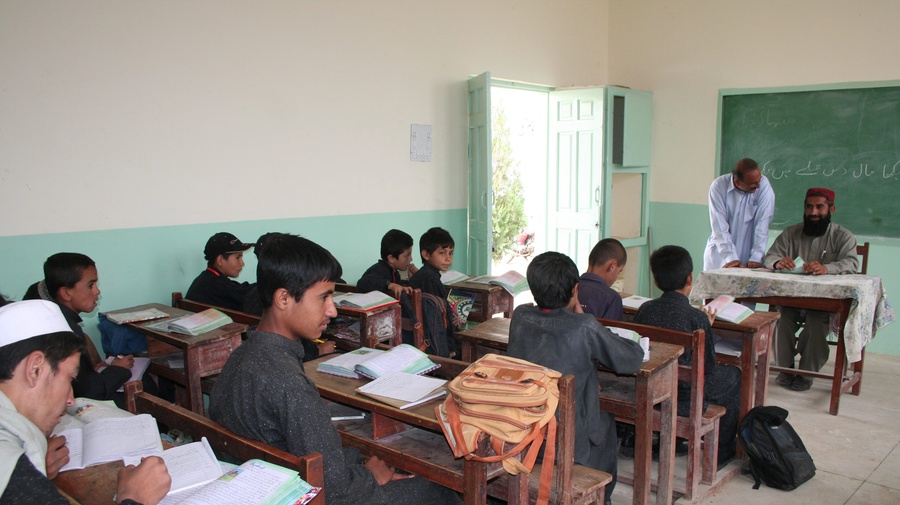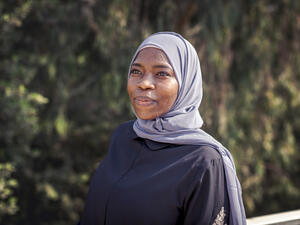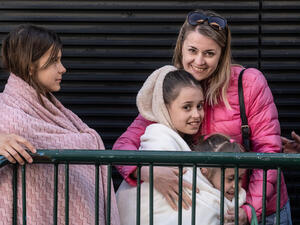Telecoms operator Lebara supports education for displaced children
Telecoms operator Lebara supports education for displaced children

This classroom in Pakistan was renovated with help from UNHCR. Funds raised by telecoms operator Lebara will help UNHCR-run education programmes in Pakistan and five other countries.
LONDON, United Kingdom, August 2 (UNHCR) - A leading European telecoms operator, Lebara, has this week launched a fund-raising drive to support UNHCR-run programmes to help more than 100,000 displaced children go to school in six countries around the world.
The British-based Lebara, as part of its 10th anniversary celebrations, plans to raise 600,000 euros in the eight countries where it operates: Australia, Denmark, France, Germany, the Netherlands, Spain, Switzerland and the United Kingdom. Many of its customers in these countries are migrants or refugees.
The funds will be used to help forcibly displaced children in Colombia, Ghana, India, Pakistan, the Philippines and Turkey, including support for school-related costs such as uniforms, transport and books. The donation will also provide language training, vocational skills and education for infants.
Lebara's assistance will also help UNHCR increase the number of children attending school and empower girls by promoting their access to education. "We are grateful for this crucial support from Lebara. Together we can give children affected by displacement access to this basic right of education," said Roland Schilling, UNHCR's representative in the United Kingdom.
Lebara also hopes to raise a further 400,000 euros to support education programmes run by the International Federation of Red Cross and Red Crescent Societies in Morocco, Nigeria, Poland and Romania. "My fellow founders and I felt moved to mark this anniversary by giving something back to underprivileged children in countries where we have strong connections through our customers," said Yoganathan Ratheesan, chief executive officer of Lebara.
Every child of concern to UNHCR should have the right to education. However, one third of the world's refugee children are still missing out on primary education, and three out of four do not have access to secondary education. Other problems include over-crowded classrooms, lack of teaching and learning material, unrecognized diplomas, restricted curricula and unqualified teachers.
Education serves as an important tool to break out of the cycle of illiteracy and poverty that often leaves refugee families in a state of hopelessness and despair. It adds provides the skills and knowledge for a better future.
-
Find out more about Lebara's 10th anniversary €1-million fund-raising drive at http://www.lebara.com/1million.









